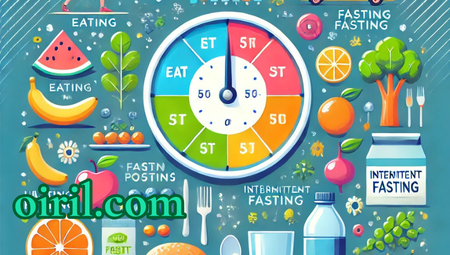Current Weight Loss Strategies Fast, Healthy, and Lasting Solutions
Achieving sustainable weight loss has evolved beyond traditional dieting methods to incorporate a holistic approach that balances physical, mental, and lifestyle elements. In 2024, new trends in health and wellness focus on balanced, science-backed methods for effective and lasting weight management. Below, we’ll dive into strategies that support weight loss through a blend of proper nutrition, fitness, mental wellness, and practical lifestyle changes.
Embrace a Nutrient-Dense Diet, Not Just Low-Calorie Foods
While calorie control is essential for weight loss, current strategies prioritize nutrient-dense foods that support health and energy. Rather than focusing only on calorie count, a nutrient-dense diet provides high-quality protein, healthy fats, and a variety of fruits and vegetables, each contributing to satiety and helping curb cravings.
A nutrient-dense diet should include:
- Lean proteins like chicken, fish, and legumes, which support muscle repair and growth, helping maintain metabolic rates.
- Healthy fats from sources such as avocados, nuts, and olive oil, which help with feeling full and provide essential nutrients.
- Fiber-rich foods like leafy greens, whole grains, and fruits, which help keep you satisfied and stabilize blood sugar levels.
Practice Intermittent Fasting Timing Matters
Intermittent fasting (IF) has gained popularity due to its flexibility and potential benefits for weight loss. Unlike traditional calorie-restricted diets, IF focuses on when you eat rather than what you eat, allowing for natural appetite regulation and improved metabolism.
Popular IF methods include:
- 16/8 method: Fasting for 16 hours and eating within an 8-hour window (e.g., 12 pm to 8 pm).
- 5:2 method: Consuming fewer calories (about 500-600) two days per week while eating normally the other five days.
- Alternate-day fasting: Alternating between fasting days and regular eating days.
Studies suggest that IF can improve insulin sensitivity and help the body use stored fat for energy more efficiently.
Incorporate Strength Training Alongside Cardio
While cardio is beneficial for burning calories, strength training builds muscle mass, which increases resting metabolic rate (RMR) – the rate at which you burn calories while at rest. This means more calorie burn even outside workout times.
Effective strength-training routines focus on major muscle groups:
- Compound exercises: Moves like squats, lunges, and deadlifts that target multiple muscles at once, burning more calories and enhancing functional fitness.
- Resistance training with weights, resistance bands, or body weight, which can be done at home or in a gym.
- Progressive overload: Gradually increasing weight or intensity to continually challenge muscles, avoiding plateaus and promoting long-term gains.
Make Sleep a Priority
Quality sleep is foundational for weight loss because it regulates hormones that control hunger and metabolism. When sleep-deprived, the body produces more ghrelin (a hunger hormone) and less leptin (a satiety hormone), increasing the likelihood of overeating and craving high-calorie foods.
For improved sleep:
- Create a consistent sleep schedule: Go to bed and wake up at the same time daily, even on weekends.
- Avoid screens before bed: Reduce blue light exposure from devices, which disrupts melatonin production.
- Practice relaxation techniques: Techniques like deep breathing, meditation, or reading before bed can improve sleep quality and reduce stress.
Stay Hydrated Water as a Weight-Loss Tool
Water is an often-overlooked yet essential component of weight loss. Not only does it help with digestion, but drinking water can also help control hunger. A study published in Obesity found that people who drank 500 ml (16 oz) of water before meals consumed fewer calories during meals.
To stay hydrated:
- Drink a glass of water before meals: This can help with portion control.
- Keep a water bottle on hand: Make it easy to drink throughout the day, especially if you have a busy schedule.
- Replace sugary drinks with water: This simple change cuts down on unnecessary calories.
Set Realistic Goals and Track Your Progress
Weight loss is a gradual process that involves setting and adjusting realistic goals over time. Small, achievable goals are more effective than extreme or short-term ones, as they help create lasting habits.
For example:
- Start with achievable targets: Instead of a broad goal like “lose weight,” set specific goals, such as “lose 5 pounds in a month by eating more vegetables and exercising three times a week.”
- Use progress-tracking tools: Many apps can track weight, food intake, and activity levels, helping identify trends and celebrate milestones.
- Adjust based on progress: Flexibility is key – if a strategy doesn’t work, adapt it or try a different one that aligns with your lifestyle.
Reduce Processed Foods and Limit Sugar Intake
Processed foods are high in empty calories, sugars, and unhealthy fats, all of which can lead to weight gain. By reducing processed food intake and focusing on whole, unprocessed foods, you’ll support both weight loss and overall health.
Some tips for reducing processed foods:
- Cook at home: Preparing meals allows control over ingredients and portions.
- Plan your meals: Planning reduces the temptation to opt for processed or fast foods.
- Check labels: Avoid products with added sugars, artificial ingredients, and trans fats.
Manage Stress and Embrace Mindfulness
Stress can negatively impact weight loss by increasing cortisol, a hormone that can lead to fat storage, particularly in the abdominal area. Mindfulness techniques reduce stress and improve self-awareness, helping manage cravings and emotional eating.
Practical mindfulness methods:
- Meditation: Practicing even five minutes a day can improve mental clarity and reduce stress.
- Mindful eating: Focus on each bite, avoid distractions, and chew slowly to help recognize fullness cues.
- Journaling: Keeping a journal of emotions, eating habits, and progress can provide insights into patterns and areas to improve.
Understand Body Composition, Not Just Weight
Instead of focusing solely on weight, understanding body composition (the ratio of fat to muscle) provides a clearer picture of health. Muscle tissue is denser than fat, so while you may not see drastic weight changes, your body shape and size may improve as you build muscle and lose fat.
Consider measuring progress in other ways:
- Body measurements: Track measurements of the waist, hips, and thighs.
- Body fat percentage: Body fat scales or professional assessments can provide insight beyond weight alone.
- Photos and clothing fit: Visual changes or how clothes fit can be more encouraging than the scale.
Consistency is Key
Consistency is the most important factor in achieving lasting weight loss. Rather than seeking perfection, aim for steady adherence to your plan, even with occasional setbacks. Adjust your approach as needed but focus on the long-term goal of healthier habits and improved well-being.
In summary, effective weight loss in 2024 goes beyond traditional dieting and incorporates a comprehensive approach to physical and mental health. Through balanced nutrition, consistent exercise, proper sleep, mindfulness, and realistic goals, sustainable weight management is achievable. By adopting these strategies, you can work toward not only achieving your weight loss goals but also fostering a healthier, more balanced lifestyle.





